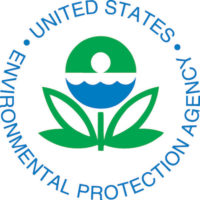U.S. Environmental Protection Agency actions against polluters dropped more than 50% in the last decade, with funding and staff levels for its enforcement program each down by 20% between 2007 and 2018, says a new report by the agency inspector general.
IG Sean O'Donnell says that the number of agency inspections, which could lead to possible enforcement actions, had increased from 2007 to 2010 but then fell by 50% from 2010 to 2018. “In the time period we examined, EPA conducted the fewest inspections in 2018,” says the March 31 report by his office.
EPA responded to the report saying that it was not updated to include 2019 improved enforcement results.
The IG report notes that in the studied period, enforcement cases initiated after inspections were completed fell by 52%—from 3,784 in 2007 to 1,829 in 2018, and concludes that the number of EPA administrative actions, which make up the bulk of its enforcement, fell 58% from 2007 to 2018, while referrals to the U.S. Justice Dept. for legal action dropped below 100 for the first time in 2018.
According to the IG report, the number of actions that resulted in penalties dropped 53% in the period studied. Penalties varied by year, but EPA assessed the lowest penalty total in 2018 at $69 million compared with the highest of $6.1 billion in 2016. The largest settlement during the review period was in 2016, with Volkswagen agreeing to pay $17.8 million for Clean Air Act violations.
The report also shows a 48% drop in additional environmental improvements completed as part of an enforcement action; the lowest-value of such investments was $18 million in 2017, compared to $53 million in 2009, the highest value.
Commitments to reduce, treat or eliminate pollutants decreased 31% in number between 2012 and 2018 and dropped 64% in value, the IG said. The agency changed the way it tracks commitments in 2012 and used that year as the best comparison to 2018.
“EPA’s current enforcement strategy has emphasized the agency’s role in providing technical assistance to state environmental-enforcement programs, purportedly as an effective substitute for assertive federal enforcement efforts. However, most states can’t fill that federal role,” says Joel Mintz, an environmental law professor at Southeastern Nova University in Ft Lauderdale, Fla. and a former EPA senior attorney.
State environmental agencies have had major budget cuts in the past decade, which eliminated 4,400 staff positions and hurt state-level enforcement, he says.
The IG says the audit was done to identify trends in EPA enforcement. In a later report, It plans to identify factors explaining the trends that will also compared state and regional trend differences.
In EPA's response to the report, Susan Bodine, assistant administrator for enforcement, said that more than 1,900 facilities voluntarily reported violations in 2019, a 20% increase over 2018. She also noted $471 million in combined administrative and judicial civil penalties and criminal fines, “the highest total of all but four of the past 10 years.”
Meanwhle, in an April 2 press statement and in a letter to all members of Congress, EPA disputes media reports that the articles mischaracterize agency intent related to its March 26 directive that could ease penalties for environmental non-compliance due to COVID-19 staffing shortfalls. The reports had been cited by congressional representatives in critical letters to EPA
Said EPA, "allegations that the agency 'will cease all enforcement actions during the coronavirus pandemic' and that the temporary policy absolves
polluters of all responsibility' are simply not true.“
In an April 2 response to Rep. Katie Porter (D-Calif.) Bodine said EPA "strongly disagrees" with forcing facilities "to either shut down or to put people at risk by keeping all their workers at the facilities at the same time" for "routine monitoring and reporting." She said, however, the "temporary policy does not excuse exceedances" of pollutant limits in permits, regulations and statutes because of the pandemic.
EPA said it "expects regulated entities to comply with all obligations" and will weigh pandemic circumstances of violators "on a case by-case basis, when determining an appropriate response."






Post a comment to this article
Report Abusive Comment